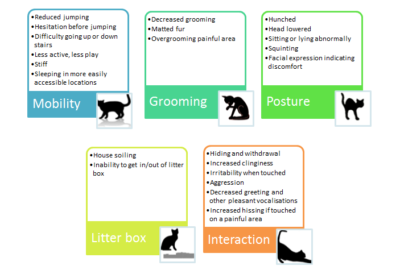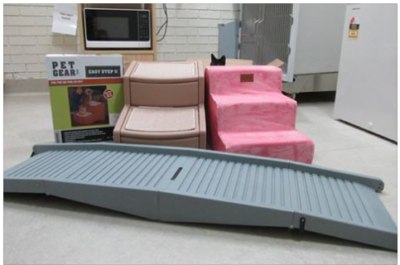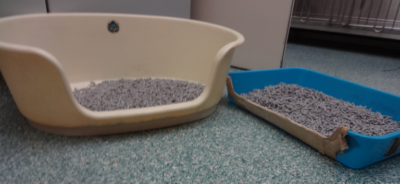Many of our older cats are silently suffering from arthritis.
Cats are very good at hiding when they are in pain, therefore, the visible signs of arthritis are very subtle.
Even just a slight change in the way they are jumping might be the only clue we are given.
Cats with elbow pain may extend a leg and hesitate before jumping down, they often land with a thud and pause before walking away.
Cats with knee pain will use creative ways to avoid jumping up high – they may go via a chair to get to the table, or avoid heights all together. You may notice them scrambling to get up, or asking to be lifted.
Some cats will get long nails from inactivity and may need them trimmed more frequently. Other cats will get matted fur, because it hurts them to turn around and groom. You may even notice your cat sleeping more often.

If you have noticed any of these signs there are many options available to help make your cat more comfortable.
Things we can do at home:
-Warm bedding in an easy to access location
-Using ramps and steps to ensure access to your cats’ favourite resting places
-Using litter trays with lower sides to allow ease of entry
-Providing food/water at floor level or slightly raised


Are there any medications?
Lots of cats thrive when given medical treatments for their arthritis. There are many options that we can use; they range from dietary supplements, to liquid anti-inflammatory given in the food, to creams you can put on your cats ear. So even if your cat is difficult to tablet there are plenty of choices.





